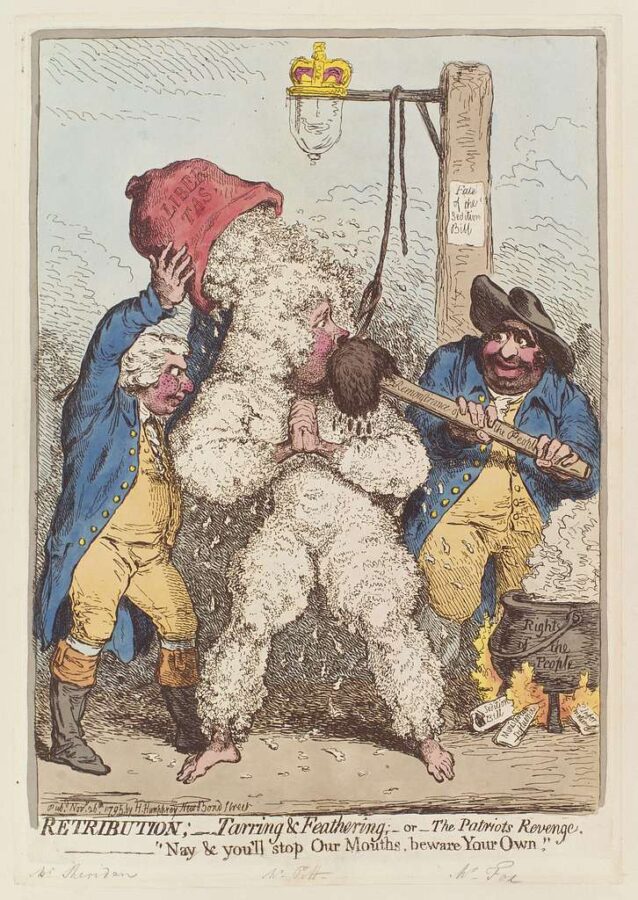(PCC)Speaker of the House Mike Johnson just suggested that Governor Gavin Newsom should be tarred and feathered! But the real problem is it looks like most of America agrees with Mike Johnson.
Now what?
In an era of intense political polarization and frequent rhetorical brinkmanship, comments that might once have been dismissed as hyperbole now carry heavier weight. House Speaker Mike Johnson, has reignited a firestorm of controversy with his suggestion that California Governor Gavin Newsom “ought to be tarred and feathered” for his resistance to Trump administration actions in Los Angeles.
This comment, jarring in both tone and historical allusion, has prompted public backlash and sparked a broader discussion: Is America veering toward a dangerous normalization of violent language and archaic punitive imagery?
The context refers to Newsom’s weak response to the chaos in Los Angeles, which has understandably left Mike Johnson and millions of others feeling exasperated!
The backdrop to this exchange is unrest in Los Angeles, where a protest against Immigration and Customs Enforcement (ICE) quickly devolved into ongoing riots. President Donald Trump responded by activating 2,100 National Guard troops and sending 700 Marines from Twentynine Palms to assist in restoring order. The militarization of the response has drawn sharp criticism from California officials.
Governor Newsom and Attorney General Rob Bonta have sued the federal government over what they argue is an unconstitutional federalization of the state’s National Guard. In response, Trump and Johnson have escalated their rhetoric, with the president endorsing calls for Newsom’s arrest and Johnson opting for a historically violent metaphor.
Was the tar and feather remark in jest or a return to the 18th century? Tarring and feathering is a form of public torture and humiliation that dates back to colonial America. It involved pouring hot tar on a person’s skin and covering them in feathers, often followed by public parading and mob violence. During the American Revolution, vigilante justice and mob intimidation used it as a tool.
Governor Newsom responded with cutting sarcasm: “Good to know we’re skipping the arrest and going straight for the 1700s-style forms of punishment. A fitting threat given the GOP wants to bring our country back to the 18th century.”
Speaker Johnson later reframed his comment as a non-legal statement, saying he wasn’t giving legal advice on whether Newsom should be arrested, but the damage was done. For many observers, this language is more than a gaffe; it’s a symbol of a troubling shift in political norms.
In an era where political violence is no longer unthinkable, where Los Angeles is under siege, where police face threats, and where rallies can turn deadly, statements like Johnson’s don’t exist in a vacuum.
There is no serious threat, but the fact that a Speaker of the House would casually invoke such a method is a sign that rhetorical boundaries are being stretched, if not broken.
Should he have said it? At this point, most Americans know that this type of punishment is not the answer, but it clearly shows the height of the frustration felt all the way in Washington, DC.
Final Word: Tar and feathers is not the answer, but jail for Newsom may be.



